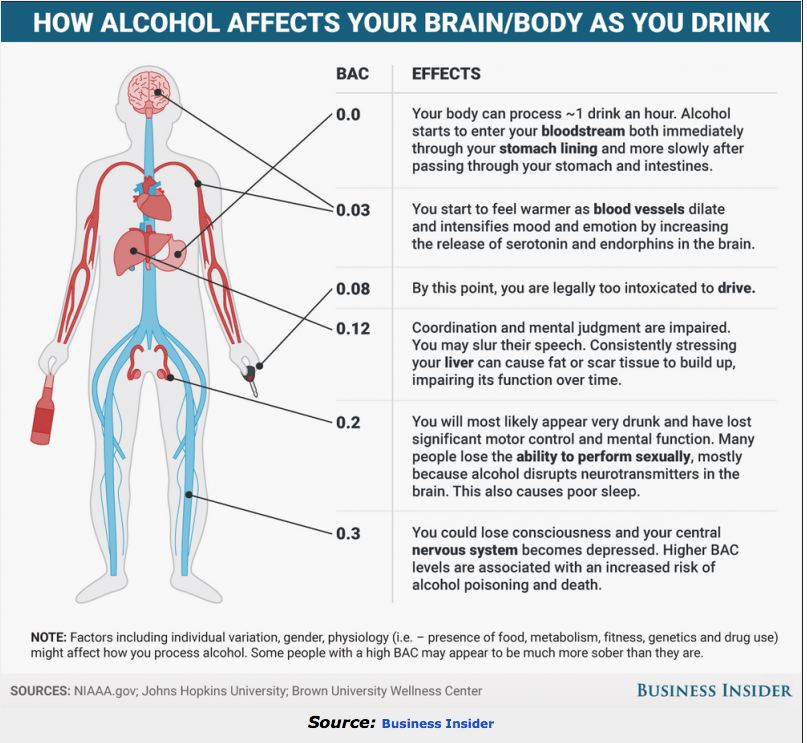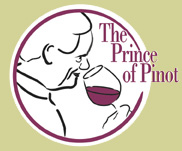Informed Doctors Reveal Truths about Wine & Health
W. Blake Gray, staff writer for Palate Press, The Online Wine Magazine at www.palatepress.com/author/wblake-gray/, published a review of a seminar in Canada on wine and health held by two doctors, Michael
Apstein, M.D., and Ian D’Agata, M.D., who are gastroenterologists and also wine writers. 15 facts about wine
and health came out of this seminar:
(1) A cleansing by taking a week or month off from drinking is not particularly beneficial. The liver creates
enzymes to metabolize alcohol and Dr. Apstein said, “Consistent moderate drinking is better. The liver
creates enzymes to metabolize alcohol and has the capacity to create more enzymes."
(2) Acetaminophen (Tylenol) should not be ingested when drinking wine since people who drink alcohol have a
higher risk of getting liver disease from Tylenol.
(3) Aspirin is also not an ideal painkiller for drinkers.
(4) Wine is close to the pH of stomach acid, which helps digestion, but it makes heartburn worse.
(5) Sparkling wine makes people drunk faster than still wine because carbonation accelerates stomach
emptying. Keeping alcohol in the stomach longer allows it be broken down better and absorbed less,
limiting the increase in blood alcohol. That is why it is advisable to eat while drinking since it slows down
emptying of the stomach.”
(6) Women have a harder time breaking down alcohol than men. They have a different stomach enzyme or
these enzymes are blocked by estrogen. (I should add that there has been considerable publicity in the
news recently about alleged rape in women who are inebriated. I learned early on at frat parties in college
that women cannot hold their liquor. Women should never drink so much that they put themselves in an
uncompromising position. Young girls need to be educated about this - see # 14)

(7) Hangover remedies do not work. To avoid a hangover, Dr. D’Agata advises, “Drink a liter of water before
going to bed and probably a little sugar too.”
(8) We still do not clearly know what causes red wine headaches. Some think it is histamines and try to treat it
with beta blockers. But most people who get headaches stop drinking wine.
(9) Sulfites are an overblown worry. The gorilla in the bottle is alcohol, not sulfites. About 1% of Americans have
a genuine allergic reaction to sulfites expressed as dangerous asthmatic reactions and hives. As far as the other
99% of us, sulfites are not a problem and they keep wine pristine.
(10) Most natural wines smell like bruised apples because if acetylaldehyde molecules don’t bind with sulfur,
free acetyladehyde is present. Dr. D’Agata said, “People talk about natural wines showing terroir. They all
smell like bruised apples, and that comes from acetylaldehyde. That’s not terroir.”
(11) For pregnant women, it is best not to drink any alcohol during the first trimester as the fetus is most
sensitive in the first three months. The problem is that many women don’t immediately realize they’re
pregnant. If they are trying to get pregnant, avoiding alcohol is probably advisable (my comment).
(12) If there is a history of breast cancer in the family, it is probably best to abstain from alcohol but this is
controversial.
(13) Good news for diabetics. Peak blood sugar concentration is 30% lower after a meal that includes a glass
of wine and that lower blood sugar is at the core of why wine is good for you.”
(14) Both doctors think we should teach children how to drink. Dr. Apstein asserts, “There are a lot of activities
that are pleasurable and potentially dangerous, like alcohol. Like driving. Like sex. We have driver’s
education. We have sex education. We need drinking education. This country is crazy. You can’t drink
anything until age 21 years and then you can drink as much as you want. We need alcohol education.”
(15) Breathalyzer tests measure alcohol absorbed from the mouth, even without swallowing the wine. So even
compulsive spitters should be aware about driving after large wine tastings.

More alcohol and health related news was reported in Vol. 46 No. 3 June 2017 issue of AIM - Alcohol in
Moderation Digest Online.
(1) The majority of epidemiologic studies have shown that both positive and negative health effects of alcohol
consumption are modified by the socioeconomic status (SES) of individuals, with truly moderate drinkers
who are from higher SES strata having better health outcomes and fewer adverse effects from alcohol than
lower SES subjects supposedly consuming similar amounts. One potential explanation for this has been
that higher SES subjects are more likely to be regular moderate drinkers, more likely to be wine drinkers,
and to drink primarily with meals, while lower SES subjects are more likely to binge drink, not with food, and
may tend to under report their alcohol intake. However, the specific reasons why lower SES subjects have
worse health overall and poorer effects after alcohol consumption remain unclear. A recent Scottish Health
Survey of over 50,000 subjects showed that lower SES subjects were at much greater risk for poor health
outcomes and risks associated with increasing amounts of alcohol were much greater in the lower groups.
(2) The association between alcohol consumption and breast cancer risk in younger women was evaluated in a
study published in the American Journal of Epidemiology. Using family history of breast cancer and folate
intake, researchers prospectively followed nearly 94,000 US women aged 27-44 years as part of the
Nurses’ Health Study II who had alcohol consumption data. Alcohol consumption was not associated with
breast cancer risk overall at levels of one drink a day in a population of younger women. However, a
positive association between alcohol consumption and breast cancer was found among those with a family
history and low folate intake.
(3) A study published in the American Journal of Internal Medicine looked at the impact of multiple healthy
lifestyle factors on lifespan. Both men and women were studied in Sweden from 1998 through 2014. Each
of four healthy lifestyle factors were studied: nonsmoking, physical activity at least 150 min/week, alcohol
consumption of 0-14 drinks/week and healthy. The researchers concluded that adopting healthy lifestyle
behaviors including moderate alcohol consumption may markedly increase lifespan.




